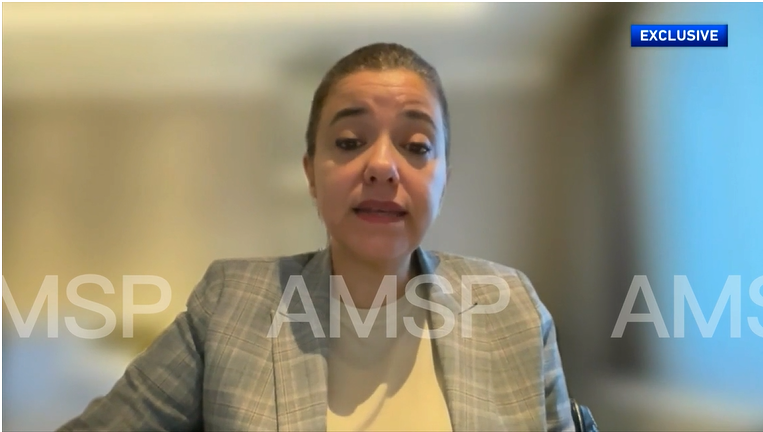November 19th (AMSP/CGTN) – – The Director of the United Nations Office for South-South Cooperation (UNOSSC), Dima Al-Khatib, said in an exclusive interview with CGTN that the leadership of developing countries in global governance is helping to promote key issues on the sustainable agenda, including poverty alleviation.
” We have also seen the developing countries have been assuming leadership roles in terms of global economic governance, and now hosting and chairing meetings of the Group of G20; whether it was India in 2022, or Indonesia in 2023, Brazil in 2024, South Africa coming up. Such leadership provides developing countries with an opportunity to take a pivotal role in advancing and advocating for south-south cooperation, and voice the interests of global south to address poverty alleviation but also the achievements of 2030 agenda, ” she said.
Accoding to UNOSSC Director, South-South cooperation has been on the rise. ” We’ve seen an increasing trend of cooperation, specially during the time of crisis, during the time of trying to address those extremely complex development issues. According to the latest report of the UN Secretary General on South-South cooperation, we’ve also seen requests from the UN member states to the UN system, with an increasing trend if you will, ” she pointed out.
She continued to say that countries of the Global South are grappling with the socio-economic implications of the COVID-19, which has put pressure on the countries and deviated the attentions of the countries from other sectors that are also as important.
” There are still a multiplicity of of interconnected issues ranging from food security, climate, economic issues. Today, as we speak, there’s a projection that by 2030, there will still be 575 million people who will be living in extreme poverty. That gives you a sense of the scale, ” she disclosed.
amsp/cgtn-abp
CGTN

